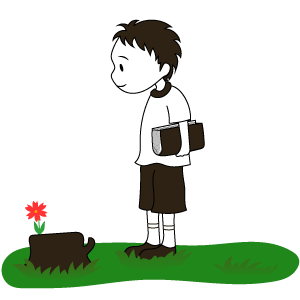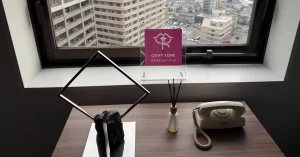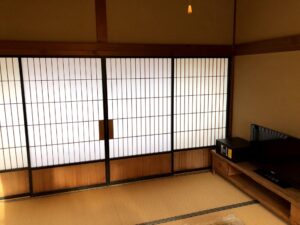Recently, online salons and private schools have become popular, and I am impressed by people like Mr. Uchida, Mr. Nishino, Mr. Sadojima, and others who are doing it well.
People who have mastered their field impart their experience, know-how, and, in some cases, their way of life, but for someone like myself, who is somewhat flustered, I honestly envy the strength of people like Mr. Kamogashira and Mr. Atsushi Nakata, who can make clear assertions.
Even now, however, when I am asked for advice, I cannot say clearly “this is what you should do” or “this is the way to do it,” but rather, “if it were me, I would do it this way” or “this is just for reference, but what if I did it this way…” (I am not sure if this is right or not, but it might be different. I just end up giving vague answers like, “If it were me, I would do it this way,” or “This is just for reference, but what if I did it this way, or this way, or maybe not.
If I am asked to say something, I will just say whatever I can think of, like the words and deeds of a great person or a famous person.
When I do this, the person who asks me about it usually has a disappointed look on his or her face. I make it a rule to never speak about something I don’t know, and never speak from my imagination.
Serious consultations are naturally serious and can sometimes change the life of the other person, so the person being asked must answer more seriously than the person being consulted.
(As a side note, what I find scary these days is when a seemingly joking and trivial consultation is actually a life-threatening question. It’s really hard to spot.)
The writer Osamu Dazai is said to have been quite upset when his fans asked him for advice about his life. He thought, “Don’t ask me how to live, when I’m the one who’s horrified and somehow still breathing.
After the consultant left, he asked someone else if what he had said was correct, and if he thought it was not, he immediately called the person in question to restate it (that kind of thing is really wonderful).
In the world of technology and knowledge, the answer may be easy to convey.
However, in the world of technology and knowledge, it might be easier to give an answer. That’s why writers make lengthy novels and movies to “replace” the answer.
Personally, I don’t trust the short, grating answers to life questions or anything else.
The late Shusaku Endo, perhaps because he had written serious religious novels, tended to receive heavy life advice from readers, and he could not bear the responsibility and pressure of such advice. It is said that he wanted his readers to think of him as a sloppy, lazy, and shabby recluse, so he began writing the Kitsunean Sensei series.
Naturally, the content of the series fundamentally changed the image of Shusaku Endo that he had previously portrayed. Perhaps this would have made him feel quite a lot better. It may be similar to the feeling of a well-known second-rate actor who, tired of maintaining his image, suddenly decides to go on a comedy show where he has to put his body on the line.
People who want to talk about something try to make disciples or followers. That is because now they can make decent money. If you are just making money by telling stories, I don’t think anything of it, because it is just another business. However, if a creator who is trying to create something starts to proudly tell life lessons and worldly wisdom in front of his followers and disciples, it seems like the end of somewhere.
I won’t say who, but just as rebel rockers and bands have somehow come to sing preachy songs and how-to-live songs.
Neither Soseki Natsume, Osamu Dazai, nor Takaaki Yoshimoto, whom I admire, created their own followers or disciples. Dazai Osamu, too, stubbornly refused to accept an apprenticeship, probably because he wanted to cherish his own omonogi (attitude toward life) more than the confidence to admonish or talk to others.
Like Soseki Natsume, young people (e.g., Ryunosuke Akutagawa) who wanted to listen to him came to his house every day, which interfered with his writing, and in the end, I think the natural form of a salon was a Thursday meeting held once a week (and then a salon like the one in Proust’s novel).
Even at these Thursday meetings, it seems that the teacher’s stance was to let everyone talk, rather than to tell the story.
It seems like I’m repeating myself, but I think he is a very confident person who creates a place to talk and a partner to talk with. Furthermore, I think it is a person who can withstand unusual strength and pressure to be able to take money.
Of course, there are people in the world who need their words to be saved, and that is important, but I am sorry to bring up Osamu Dazai’s words again here, “Don’t believe those who say things like they are enlightened. Believe in my work. I think it would be cool if I could say such a thing even while drunk.
Dazai also said, “As long as you are a disciple, you will never surpass your master. This may not be limited to the world of creative writing.
See you soon!












